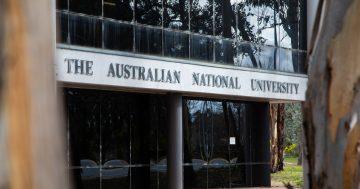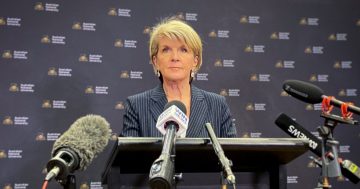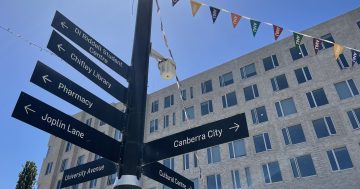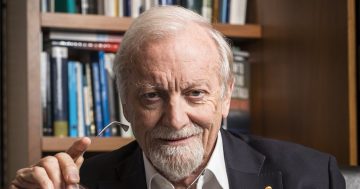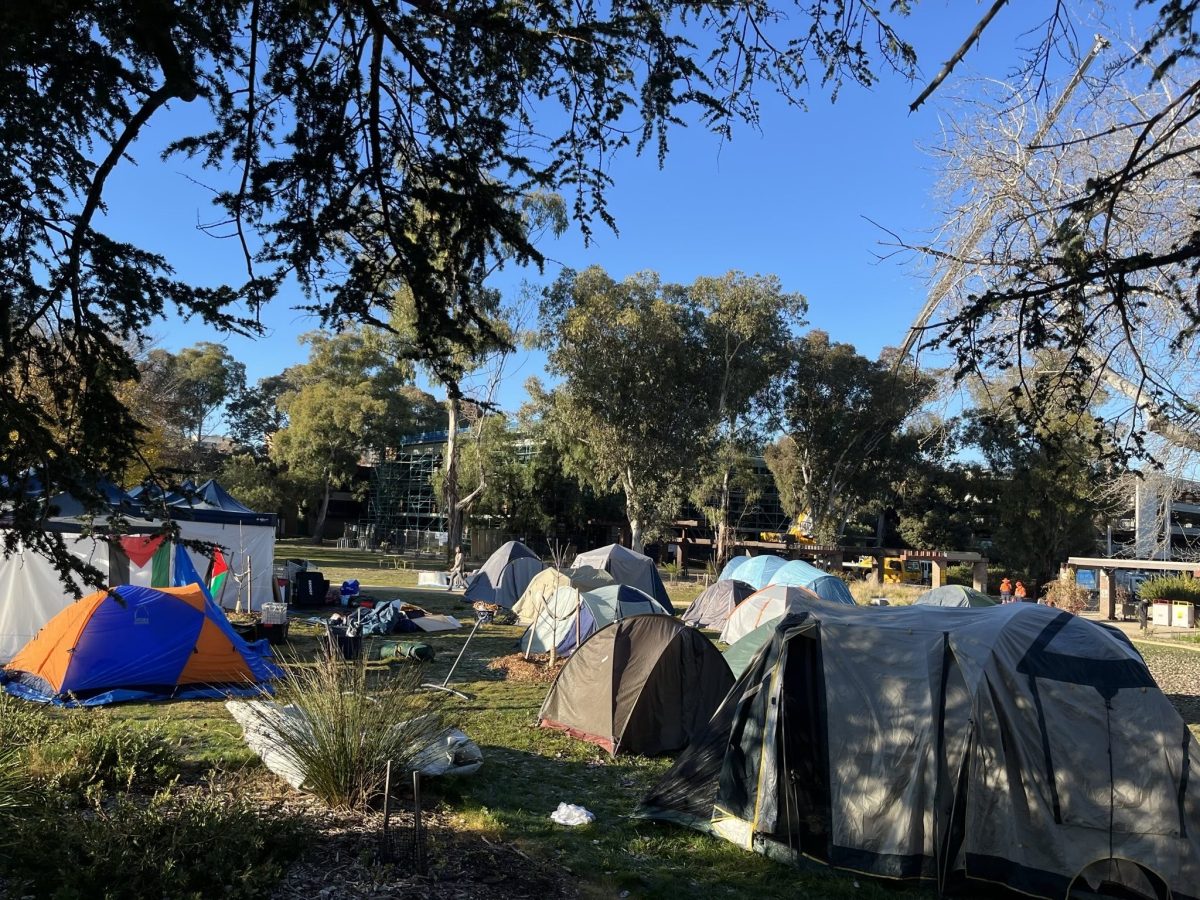
The ANU Gaza Solidarity Encampment set up camp in April 2024. Photo: Supplied.
The pro-Palestinian encampment at the Australian National University (ANU) was the longest-running protest of its type in Australia, but after 110 days, they decided to pack up the tents and marquees on Monday (19 August).
In a statement, ‘ANU for Palestine’ said the group had enjoyed success, but a dispute with the university over electricity supply to the site has made continuing the protest “completely untenable”.
“Despite claiming to support our right to protest, the ANU has called the police on us, censored us and lied about us,” the students said in a statement.
“They are now putting our basic safety at risk by telling us we are now not allowed to turn on a single light at night time. This decision is completely arbitrary and has made it completely untenable for our protest movement to continue in the form of an encampment.”
The ANU said power to the site was switched off last month after the students did not allow staff to inspect the site for safety hazards, but denied issuing any direction about not using light at night.
The students set up camp on the university grounds in early April, initially in the Kambri area, before they were ordered to move further down University Avenue on account of blocking off a fire evacuation area.
The frequent rallies have called for the ANU to divest from its ties to companies with connections to the military equipment.
Freedom of information documents requested by the students reportedly showed that the ANU had held investments in Lockheed Martin, BAE Systems, Northrop Grumman, Boeing and Saab – valued at more than $1 million.
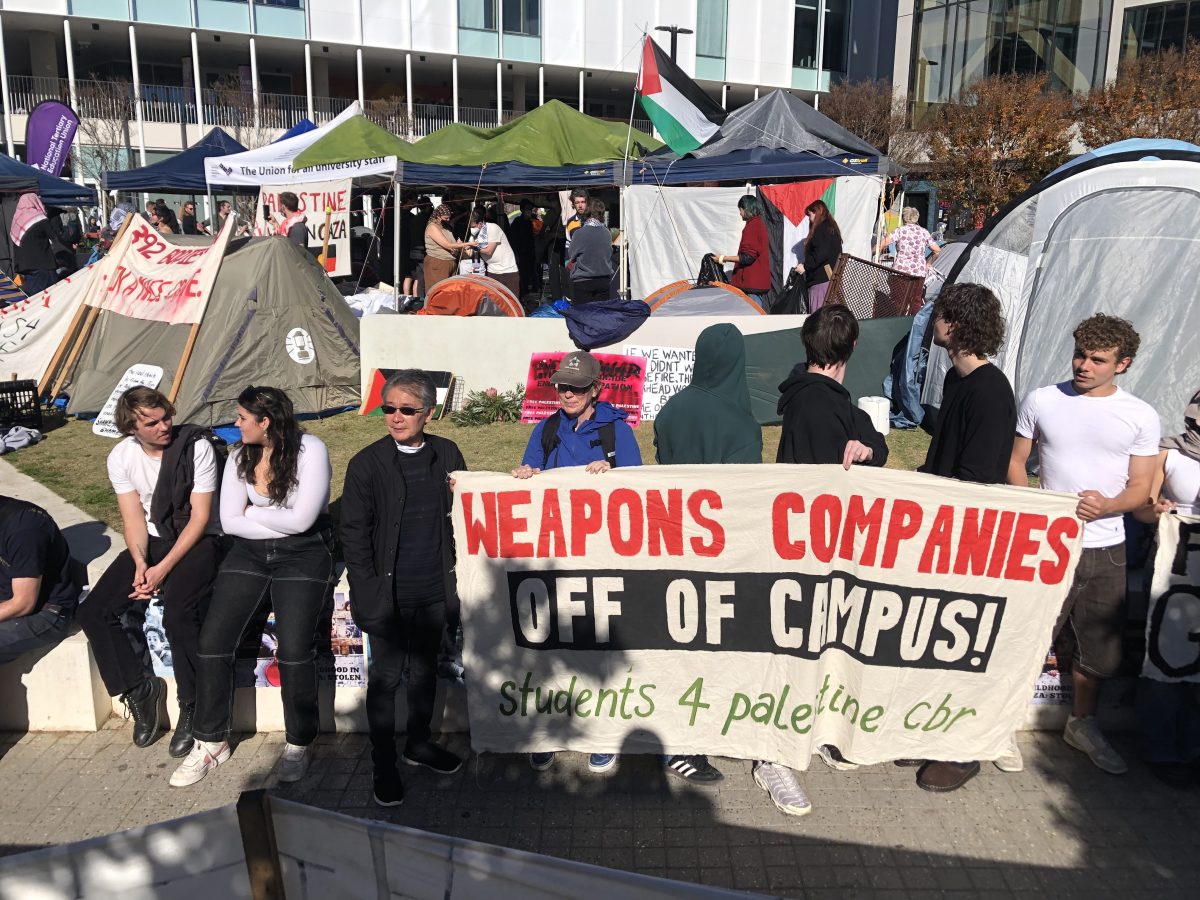
The group held regular rallies, calling for the ANU to divest from companies with military connections. Photo: Supplied.
After a decision earlier this year to update the university’s investment policy, the ANU Council announced last week it would change its long-term investment policies and would “not invest in controversial weapons manufacturers and civilian small arms manufacturers”.
The “controversial weapons” include anti-personnel mines, cluster munitions, chemical weapons, biological weapons and nuclear weapons outside of the NPT (the Treaty on the Non-Proliferation of Nuclear Weapons).
“Production of these controversial weapons is an automatic exclusion,” the council said in a statement.
“This is a principles-based decision. The university has decided it will not invest in companies that derive revenue from those activities.”
But it seems not all protesters agreed this was enough.
“It will have a marginal impact on their investments and no impact whatsoever on their research partnerships,” Nick Reich from Students for Palestine told Region.
“It’s fairly clear that a lot of the weapons companies we’ve been campaigning against will not be included in this announcement.
“Ultimately, it seems like they are just doing a PR manoeuvre.”
Associate Professor of Public Policy at ANU’s Crawford School, Elise Klein, was “one of a small number of academic staff” approached by the encampment early on to act as intermediaries and praised the protesters.
“Whilst the movement is far but over and there is more to come, it is important to pause and state that there is no doubt that the ANU encampment has led to changes,” she posted to Twitter/X.
“Over the past two months, this small intermediary team has met on three occasions with the Vice Chancellor to mediate around the encampment demands.
“I want to say that I have been disgusted by how the university has treated our students. Cutting power and letting our students shiver through Canberra winter? All this instead of simply working with the students to divest in genocide.”

ANU Associate Professor Elise Klein has come out in support of the protesters. Photo: ANU.
The ANU welcomed the protesters’ decision to decamp.
“The decision to disband the encampment on the university’s Acton campus was entirely voluntary and made by those involved in the protest,” a statement read.
“The safety of our community and our campus has been our priority throughout this process. The encampment raised several issues relating to safety and respectful conduct.
“For this reason, the decision to remove the encampment is the right one for the university community as a whole.”
The ANU Jewish Students Society and the Australian Jewish Association have both raised concerns about certain alleged actions by protesters over the past few months, including a Nazi salute and death threats aimed at Jewish students.
Two students were expelled for what vice-chancellor Genevieve Bell described as “significant violations of the code of conduct”.
Original Article published by James Coleman on Riotact.



